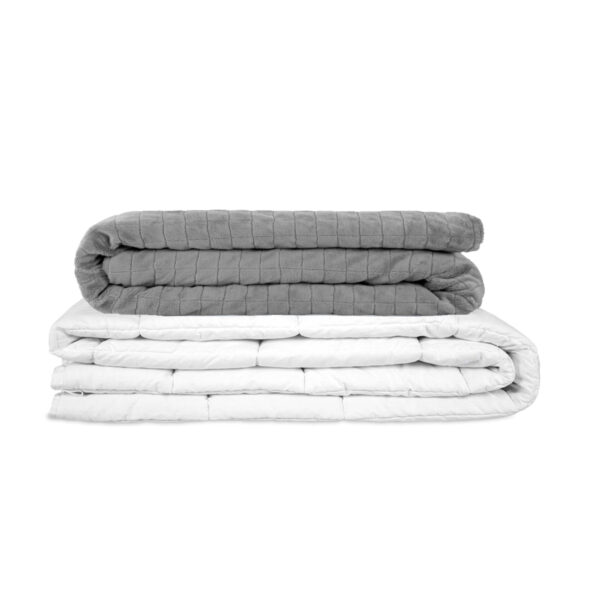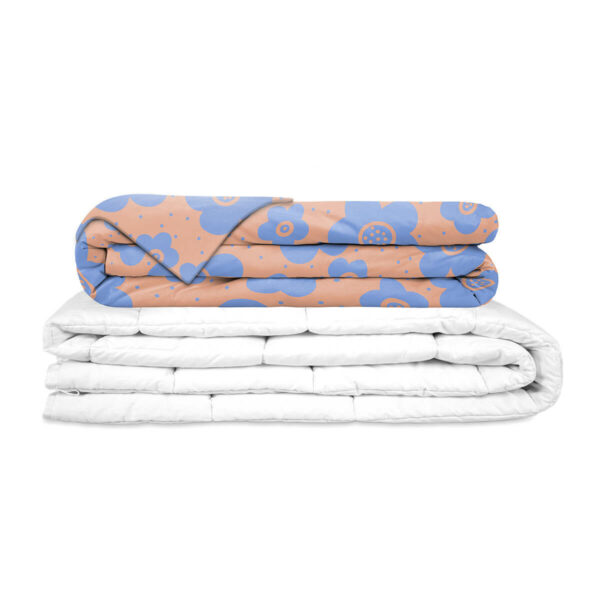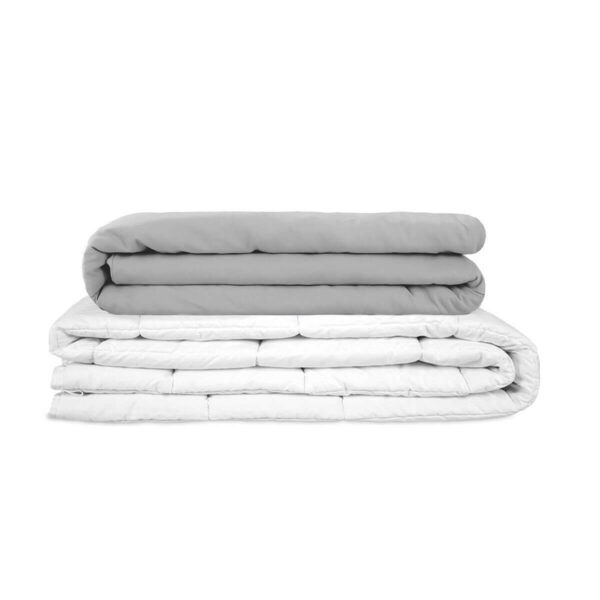
Dinah BergerPsychologist
“While anxiety levels decrease, deep pressure stimulation creates a sense of security that is often lacking, especially in traumatized people, and can lead to difficulty falling asleep and staying asleep.”
How did you come into contact with the concept of weighted blankets?
My first contact with weighted blankets was accidentally due to depression and sleep disturbance. Initially, I read many test reports on weighted blankets, where weighted blankets from your company have always been known to be one of the leading ones. Due to my educational work on Instagram about mental illness, I was also interested in the research on the effects that are publicly available on the site. Positive results, such as reducing anxiety or improving sleep quality, convinced me to test the weighted blanket.
What do you think about using a weighted blanket?
At first I found my new weighted blanket to be very stiff and less flexible compared to my regular duvet. I also had to get used to its weight. But after a few days, my body adjusted to the weighted blanket. I felt more comfortable and safe falling asleep, and the duration of my sleep was also noticeably longer. Thanks to the balance technique, the blanket does not rustle, and the deep pressure is evenly distributed over the entire body, which I find very pleasant. Today I sleep regularly under my weighted blanket.
In which areas of medicine do you think the use of weighted blankets makes sense?
In my opinion, the use of weighted blankets is especially recommended for people with mental illnesses, such as anxiety disorders, depression or the consequences of trauma. While anxiety is relieved, deep pressure creates a sense of security that is often lacking, especially in traumatized people, which can lead to problems falling asleep and staying awake at night. Through my Instagram account @erklaerungsnot, where I recommend weighted blankets from time to time, I regularly receive personal feedback from sufferers confirming the positive effects of using a weighted blanket. Based on my clinical work, I see great potential in the use of weighted blankets in an inpatient setting, for example in psychiatric clinics or youth care facilities. Weighted blankets can be a valuable support for stabilization during difficult periods of therapy.
Your conclusions from a personal or medical point of view?
Although weighted blankets are not a natural solution to the problem and will not replace psychotherapy, in my opinion, they bring many benefits to people with mental disorders or stress. I am happy to recommend weighted blankets to people, but I would also like to point out that their use should always be discussed with your doctor in advance if you have any medical conditions. While there are no concerns related to the presence of such conditions, it is definitely worth testing the blanket.







